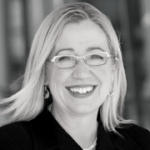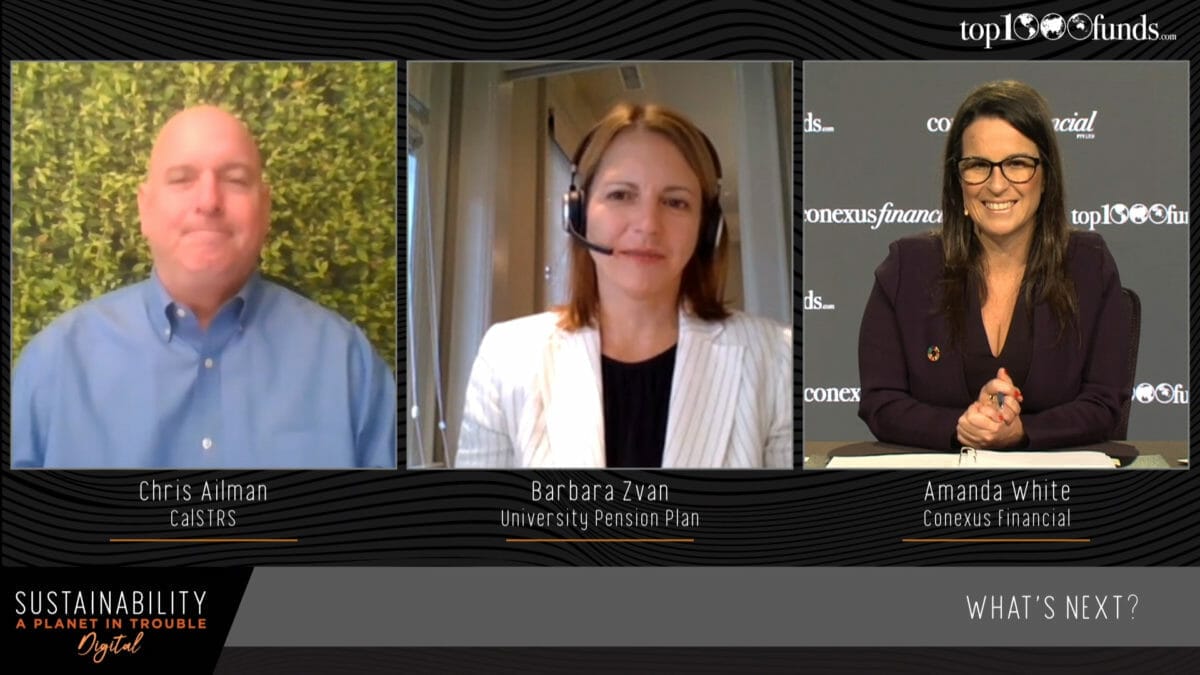This session looked at the the importance of net zero 2050 and the opportunity for a turning point post COVID-19. It examined net zero investor tools, the role of engagement, and gave examples of how investors are aligning their portfolios with the goal of the Paris Agreement.
Eva Cairns is responsible for climate change research within the ESG investment team at Aberdeen Standard Investments. That includes climate related research for high emitting sectors such as oil & gas, utilities, transportation and agriculture. She is responsible for TCFD reporting in relation to specific asset manager disclosures such as carbon footprinting, scenario analysis and integrating climate change into the investment process. She joined ASI in 2010 and before joining the ESG team managed a team of business analysts and worked on front office projects focused on the investment process, particularly research and risk. She obtained the Professional Risk Management (PRM) qualification in 2014 and was awarded Candidate of the Year 2014 based on exam results.
She was previously an economist at Halcrow, a consultancy firm where she was responsible for project analysis and delivery in the energy and transport sector across the UK and internationally. She has a MSc in Economics with Distinction and her thesis was focused on the social cost of carbon and its application in UK policy.
Anne Simpson is CalPERS’ director of board governance and strategy, reporting to the CEO and responsible for strategic initiatives across the $400 billion fund. These include Climate Action 100+, a global investor alliance of $40 trillion driving business action on climate change, the Net Zero Asset Owner Alliance, and the UN Secretary General’s Global Investors for Sustainable Development. In the past year, Simpson has been named by Time Magazine as one of 15 women leading the global fight on climate change; by GreenBiz as one of 25 “kickass” women on climate change; and as one of the 100 Most Influential Women in US Finance, by Barron’s (Dow Jones).
Simpson serves on the SEC’s Investor Advisory Committee, as well as the Haas Business School Senior Advisory Board at the Center for Responsible Business and the Leadership Council for the Robert F. Kennedy Center for Justice and Human Rights. She has published in the field over many years, most recently as co-author of the new book The Financial Ecosystem: The Role of Finance in Advancing Sustainability with Satyajit Bose and Dong Guo of Columbia University. She is also the co-author of Fair Shares: the future of shareholder power and responsibility with Jonathan Charkham.
Simpson is a graduate of Oxford University where she read philosophy, politics and economics, and a former Slater Fellow at Wellesley College, Massachusetts. Her prior roles include senior faculty fellow amd lecturer at the Yale School of Management; head of the global corporate governance forum, at the World Bank; first executive director of the International Corporate Governance Network and joint managing director of Pensions & Investment Research Consultants Ltd. She is British, has three grown children, and lives in California.
Tate has been an investment industry media publisher and conference producer since 1996. In his media career, Tate has launched and overseen dozens of print and
electronic publications. He is the chief executive and major shareholder of Conexus Financial, which was formed in 2005, and is headquartered in Sydney, Australia.
The company stages more than 20 conferences and events each year –
in cities which have included London, New York, San Francisco, Los Angeles, Amsterdam, Beijing, Sydney and Melbourne – and publishes three media brands,
including the global website and strategy newsletter for global
institutional investors conexust1f.flywheelstaging.com. One of the company’s signature events is the bi-annual Fiduciary Investors Symposium. Conexus Financial’s
events aim to place the responsibilities of investors in wider societal, and political contexts, as well as promote the long-term stability of markets and sustainable
retirement incomes. Tate served for seven years on the board of Australia’s most high profile homeless charity, The Wayside Chapel; and he has underwritten the
welfare of 60,000 people in 28 villages throughout Uganda via The Hunger Project.
Related reading
CalPERS’ investment strategy on climate change
Investing in a changing climate [full paper]
Investing in a changing climate [summary paper]
Investing for a sustainable tomorrow
Climate change investor risks and opportunities video
Net zero – idle promises
The ASI Responsible Investing podcast: The climate agenda
Key takeaways
Eva
- There are several pillars to net zero, including:
- Decarbonise
- Invest in low carbon solutions
- Net zero engagement strategy
- There will be different net zero pathways for different sectors and regions.
- Developing carbon footprinting capabilities is not without its challenges, for example it is backward looking and it doesn’t give you the whole story. You need to go beyond that with forward looking tools.
- It is important to consider how resilient a portfolio is to different climate scenarios and potential policy developments.
- It is still a challenge for some to articulate how targets are being put into action.
- We must continually ask ourselves – what is our impact on the real economy? Reporting on real world impact of decarbonisation is a work in progress.
- Investors need to assess whether they are comfortable with the risks related to physical and regulatory factors.
- We often talk about climate risks, but investors can take advantage of the many companies that will benefit from the transition to a green economy.
Anne
- Greenhouse gases do not have a passport, so we need a global strategy.
- We cannot exclude anyone. We cannot exclude emerging markets. We are all in the same boat amidst the same storm. We are seeing the first results in India of major companies committing to net zero.
- There must be dialogue with regulators and government agencies. We only make progress through partnerships. Money does talk, but we need the level playing field of rules and governance.
- Success for Climate Action 100+ is to:
- Have boards take responsibility for transition strategy to net zero by 2050
- Have each company set targets to achieve net zero by 2050
- Create a reporting framework, preferably a mandatory reporting requirement within an audit
- We have outlined the carbon footprint of 90 per cent of our entire fund.
- We have developed a physical risk mapping tool to understand zip code risk.
- We look up to a century ahead as we have an intergenerational investment responsibility.
- We have found that taking a sustainability lens to risk and return has made us more intelligent investors. Risk in not to be avoided, but to be understood for benefit.
- CalPERS thinks about managing 3 types of capital – financial, environmental and human. This means that ESG is not an add-on, but a critical part of investment DNA and fiduciary duty.





